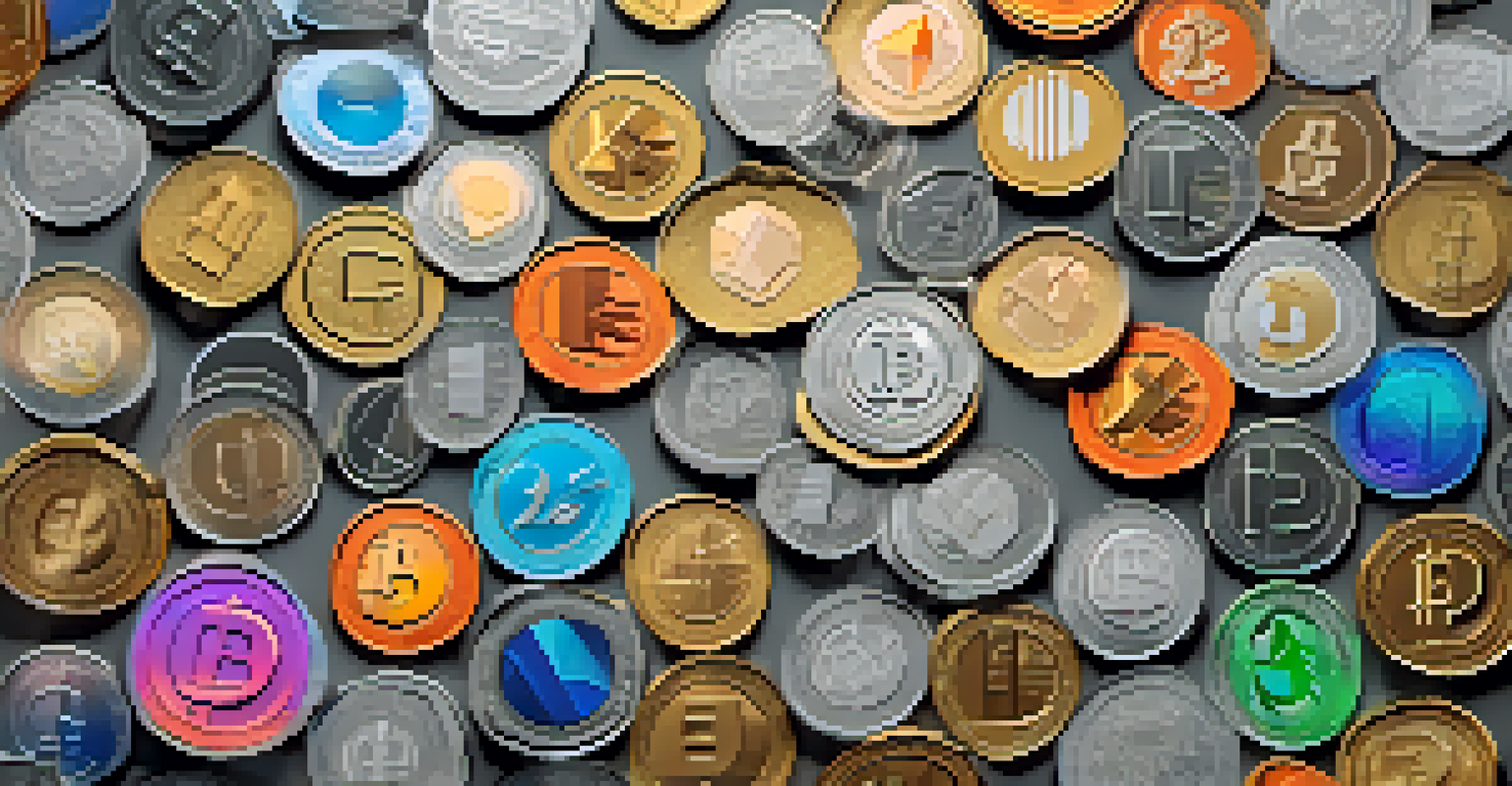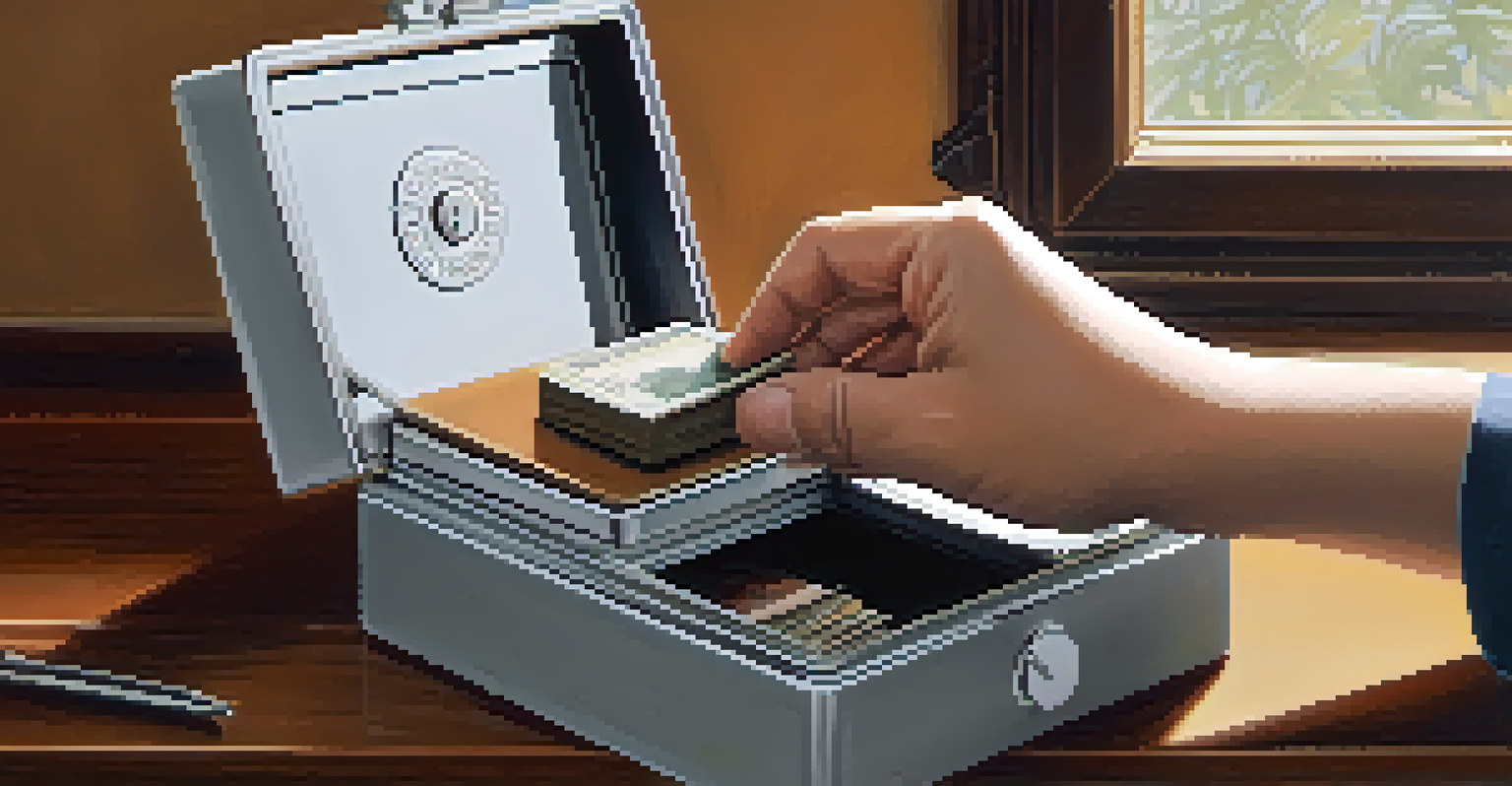Paper Wallets: An Offline Solution for Cryptocurrency Storage

What Is a Paper Wallet and How Does It Work?
A paper wallet is a physical document that contains your cryptocurrency keys. It’s created by generating a private key and a public address, which you then print out. This method ensures your keys are stored offline, making them less vulnerable to hacking and online theft.
The safest way to store your cryptocurrency is by keeping it offline, far from the reach of hackers.
To use a paper wallet, you typically need to create it using a secure, offline generator. This process minimizes the risk of exposure to malware and online attacks. Once you have your keys printed, you can store the paper safely, like you would with cash or important documents.
Despite its simplicity, a paper wallet can seem daunting at first. However, once you understand the basic concepts of public and private keys, it becomes easier to grasp. Think of it as a safe where you keep your money, but all you need to protect is a piece of paper.
Benefits of Using a Paper Wallet for Cryptocurrency
One of the biggest advantages of a paper wallet is enhanced security. Since it’s completely offline, there’s no risk of hacking, which is a common concern with online wallets. This makes it an ideal choice for long-term storage of cryptocurrencies.

Another benefit is its simplicity and cost-effectiveness. Creating a paper wallet is free, and all you need is a printer and some basic understanding of how cryptocurrencies work. Unlike hardware wallets, you don’t need to invest in additional devices.
Secure Storage with Paper Wallets
Paper wallets provide enhanced security by keeping your cryptocurrency keys completely offline, reducing the risk of hacking.
Additionally, paper wallets are easy to use and can be easily transported. You can carry it in your wallet or store it in a safe place. This portability adds to its appeal, particularly for those looking to keep their assets secure without relying on digital devices.
Risks and Considerations of Paper Wallets
While paper wallets offer significant advantages, they also come with risks. For instance, if you lose the paper, you lose access to your cryptocurrency. There’s no way to recover the funds, which highlights the importance of storing it in a safe place.
There is no such thing as a completely secure storage solution, but paper wallets come pretty close if handled correctly.
Another concern is the potential for physical damage. Paper can easily be damaged by water, fire, or simply wear and tear over time. To mitigate this risk, consider making multiple copies and storing them in different secure locations.
Lastly, creating a paper wallet requires careful attention during the generation process. If you use an insecure or compromised generator, your keys can be exposed. Always use reputable sources and generate your wallet in a secure environment to ensure the safety of your funds.
How to Create a Paper Wallet Step-by-Step
Creating a paper wallet is a straightforward process if you follow the right steps. Start by disconnecting your device from the internet to minimize any potential risks. Then, use a trusted, open-source wallet generator that allows for offline creation.
Once you’ve accessed the generator, follow the instructions to create your keys. After generating your public and private keys, print them out immediately. It’s vital to ensure your printer is also disconnected from the internet to avoid any potential leaks.
Risks of Losing a Paper Wallet
If a paper wallet is lost or damaged, accessing the stored cryptocurrency becomes impossible, highlighting the need for safe storage.
Finally, store your printed paper wallet securely. Consider using a safe or a fireproof box to protect it from physical damage. Remember, keeping your paper wallet secure is just as important as creating it correctly.
Best Practices for Storing Your Paper Wallet
To ensure the safety of your paper wallet, consider creating multiple copies and storing them in different locations. This way, if one copy is lost or damaged, you still have access to your cryptocurrency. Think of it like having spare keys for your house; it’s always better to have backups.
Additionally, avoid writing down any sensitive information on the same paper that contains your keys. This minimizes the risk of someone discovering your private key if they come across your notes. Keeping your wallet clean and simple is essential for security.
Finally, regularly review your storage methods and update them as needed. Just as you might change your home security system, keeping your cryptocurrency safe requires ongoing vigilance. Staying proactive about your storage methods will help you maintain the security of your assets.
When to Use a Paper Wallet vs. Other Wallet Types
Choosing between a paper wallet and other wallet types depends on your needs and how you plan to use your cryptocurrency. If you’re looking for a long-term storage solution for your assets, a paper wallet is an excellent option due to its offline nature.
On the other hand, if you frequently trade or use your cryptocurrency for everyday purchases, a hot wallet may be more suitable. Hot wallets, which are connected to the internet, allow for quick access to your funds but come with higher risks.
Combining Wallet Types for Safety
Using both paper wallets for long-term storage and hot wallets for daily transactions can balance security with accessibility.
Ultimately, many cryptocurrency users find a combination of wallet types works best. Using paper wallets for long-term storage while maintaining a hot wallet for daily transactions can balance security and accessibility.
Final Thoughts on Paper Wallets and Security
In the world of cryptocurrency, security is paramount, and paper wallets offer a unique solution for safeguarding your assets. Their offline nature provides a significant barrier against hacking, making them an attractive option for long-term storage.
However, like any storage method, it’s essential to understand the risks involved and take the necessary precautions. By following best practices and staying informed, you can effectively use paper wallets to protect your cryptocurrency investments.

As you navigate the ever-evolving landscape of digital assets, having a secure strategy in place will give you peace of mind. Embracing the right tools and practices, including paper wallets, can help you confidently manage your cryptocurrency journey.